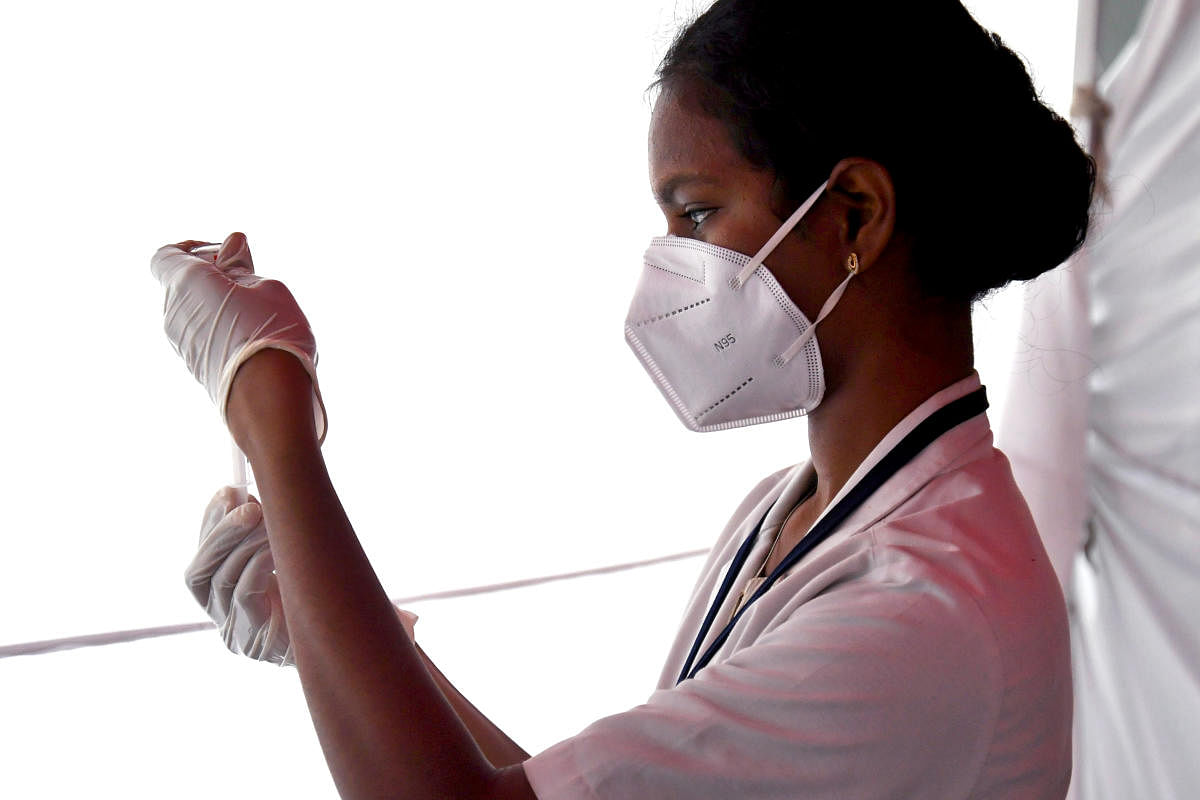
Final-year MBBS students, interns and doctors talk about how the pandemic has impacted the medical fraternity and disrupted the delivery of traditional medical education.
Metrolife brings you tales of how they overcame these challenges and put duty before all else.
Problems with PPE kit
Pooja Hegde, final year MBBS student in the city, said, “I haven’t worn a PPE kit till now but have been told by my seniors that some people suffer from dizziness, fogging, anxiety attacks, and breathlessness after wearing it for a long time. I get dyspnea (shortness of breath) just by hearing these symptoms.”
Dr Rahul R, worked at a government Covid facility during the lockdown. “Wearing the kit was horrible. While doing a thoracostomy, I couldn’t breathe and see anything as my mask would fog up,” he says.
Family worry
Akash, final-year medical student, says, “My family is scared to send me for Covid work.” Medical professionals who stay in shared spaces, have the added risk of infecting others around them.
Dr Vindhya Prasad, spent the last few months working at a Covid hospital. “I was terrified to come home after work. I moved out of the home to keep them safe. There had been instances when I couldn’t see my parents for weeks as I had become a primary contact of many patients,” she says.
Safety precautions
On the safety precautions taken after work, Dr Vindhya said, “PG students guided me with all procedures. I had a proper bath, took Vitamin C tablets, gargled, and did steam inhalation.”
Dr Ananth M Adhyam, house surgeon, said: “After testing positive in September last year, I became extra careful and washed OT scrubs, wore a mask, and hand washed daily.”
“I also wore an N-95 mask at all times and kept hospital-related equipment outside home,” added Dr Rahul.
Impact on studies & practical exposure
Many had to juggle between academics and monitoring home isolation patients. “Initially, I spent more time in calling patients and concentrated less on studies, but now I focus more on academics as it’s crucial,” says Akash.
“I downloaded all study materials on my iPad and studied even in the hospital,” added Dr Rahul.
Pooja is delighted to have helped around 100 patients so far through the Home-Isolation (HI) programme.
Highlighting the benefits of the HI programme, she said, “The top ten final year MBBS students who make maximum calls in a week are given appreciation certificates. A student has set a record of calling 650 patients in a week.” However, she said that as a result of this, they had to give their final exams without any practical knowledge. “Around 50% of our curriculum involves being in the hospital and interacting with patients, but the pandemic has put a full stop to this,” Pooja said that they took their final exams in just three months with no practical knowledge.
“Students will not benefit anything from the curriculum if teaching hospitals are converted into Covid care centres,” Dr Vindhya regretted.
However, Dr C Nagaraj, director of Rajiv Gandhi Institute of Chest Diseases, said, “Our robust curriculum has taught our PG students the procedure to admit even critical Covid-19 patients to ICU.”
He was confident that their students would be able to handle even paediatric Covid-19 cases during the third wave of the pandemic.
Stipend
Dr Vindhya says, “Our community is extremely underpaid, overworked, and sleepless all the time. We requested the governing body to fix our stipend a little more than the daily wage. But nothing has changed.” “My salary was always delayed by a month or two,” Dr Rahul said in despair. But, according to RGUHS officials, “Every student interning at a Covid hospital has been paid Rs 30,000 a month without fail.”
Violence against doctors
“This has been a heinous act of crime against doctors during this pandemic. It is scary to go to work as mobs come and attack us while on duty. Recently, the government has come up with a law to protect us only during the pandemic, but these are not comprehensively framed to protect us otherwise,” says Dr Vindhya.
Third wave of the pandemic
“We have some basic requests on fair pay, adequate accommodation facilities, security, reasonable working conditions, and provisions for care if either we or our family contract Covid-19 during work,” says Dr Ananth. He added that students and interns would work if the government acceded to their above conditions.